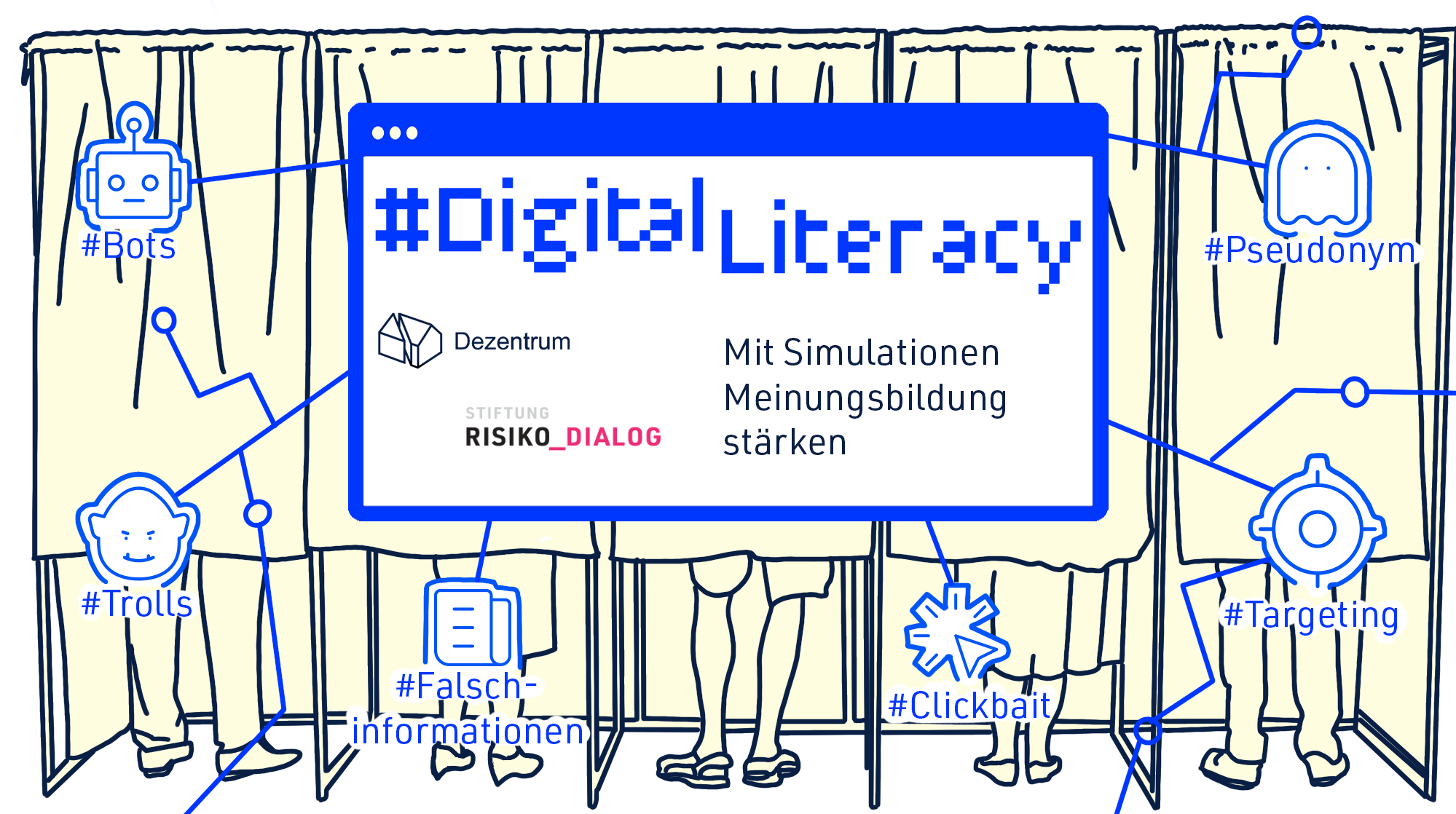With our Digital Literacy Simulation we are meeting the pulse of our time. An informed and respectful debate culture affects us all. The simulation allows us to actively experience and improve digital discussion culture, information gathering and opinion formation. After we were able to develop the first prototype last year with the support of the Canton of Zurich and in cooperation with Dezentrum, we currently have the privilege of further developing the simulation with the support of three other partners – E-Government Switzerland, the Gebert Rüf Foundation and the Christoph Merian Foundation – and preparing it for various target groups.
For most people, obtaining information and communicating in the digital space is now part of everyday life. For a differentiated and balanced formation of opinion in the digital space, certain digital competencies are needed. These include the safe and critical use of media and reflective opinion-forming in the digital world (digital literacy). This is where the project comes in: By means of a realistic, simulated online debate, we illuminate and reflect on the digital transformation in the political opinion-forming process.
For the participants of the simulation, a virtual debate is created in which they can actively experience and question the influence of disinformation, trolls, and similar phenomena on their own opinion formation. With financial support from the Canton of Zurich, we were able to develop a prototype of the simulation in the fall of 2020 and organize initial implementations within the cantonal administration. The experience created by the prototype and the innovative approach of reflection in the group were a great success and showed the potential of the project for a broader application.
We are very pleased that in the current year we are receiving support for the further development of the project from three sides at once. Through this cooperation with different entities, the prototype is being improved and a targeted adaptation for different target groups is underway:
A project grant from E-Government Switzerland allows us to further develop the simulation in terms of content and technology, and to create the project website, which includes essential content, provides materials, and serves as a basis for us to address interested individuals or organizations. The Gebert Rüf Foundation is funding the further development and adaptation of the content for use in school classes. Young people in particular spend a lot of time in the digital space today, and new, digital information channels are increasingly replacing conventional media. It is therefore essential that young people know and recognize phenomena such as disinformation, trolls or bots and develop effective strategies for dealing with them. To this end, we will soon be conducting numerous simulations in school classes. The goal is also to further develop the simulation so that teachers can use it independently in the future. In order to optimally integrate our simulation into everyday school life, the project is being developed with teachers and adapted to the needs of school lessons.
Two weeks ago, we also received financial support from the Christoph Merian Foundation to carry out the simulation specifically in the Basel region. The target audience for digital education here is the baby boomer generation (born between 46 and 64). Research has shown that older people in particular are very susceptible to disinformation and do not have sufficient digital skills in dealing with such online phenomena.
We are very happy about the high interest and the possibility to make the simulation experienceable and usable for different people together with our project cooperation partner Dezentrum. We would like to point out that the project website will be launched in the coming weeks, with regularly updated information and offers. If you are interested in the project or have questions about its applicability in other areas, please feel free to contact us at any time.

